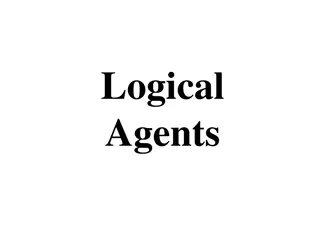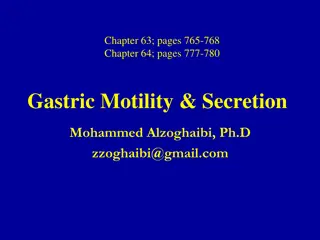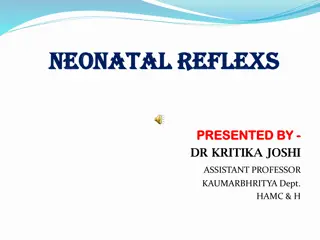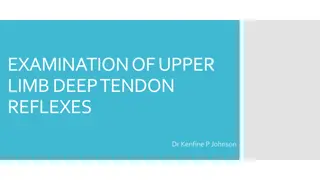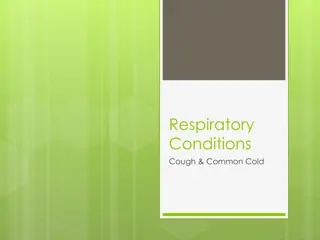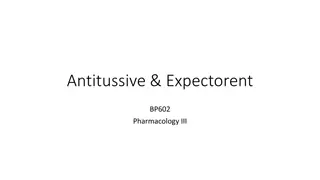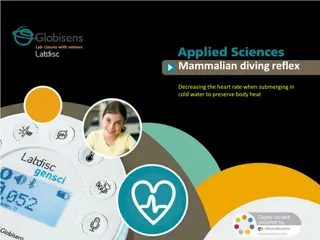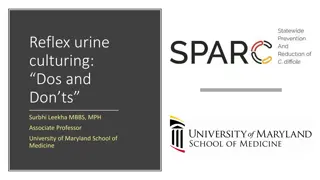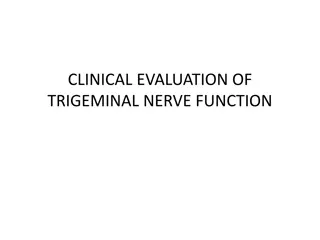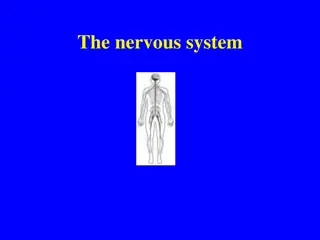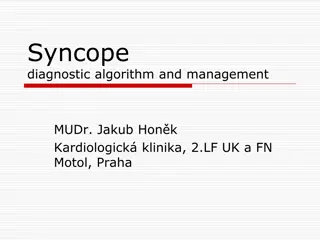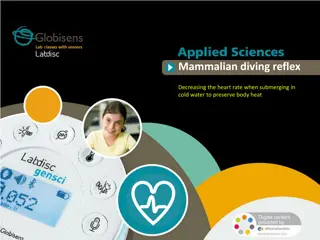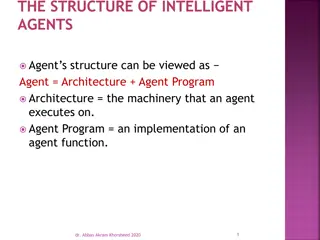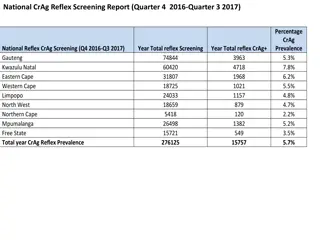Actions Emanating from the Evaluation of the Governance Reform
The evaluation of the governance reform within the WMO aimed to assess its alignment with strategic objectives, effectiveness in responding to societal needs, coordination efficiency, decision-making process, agility, and more. Evaluation criteria included relevance, design validity, effectiveness,
1 views • 13 slides
REFLEX: The Saipem Digital Knowledge Management Solution
REFLEX is a comprehensive digital knowledge management solution developed by Saipem. It focuses on leveraging experiences and lessons learned to enhance competitiveness and efficiency within the organization. The platform facilitates the validation and implementation of lessons learned through a str
6 views • 5 slides
Comprehensive School Quality Assurance and Evaluation Process
A detailed insight into the Quality Assurance Department's role in school evaluation and improvement processes, including Whole School Evaluation (WSE), Follow-through initiatives, Teaching and Learning assessments, Resumption and Examination Monitoring. The process involves both internal self-evalu
0 views • 20 slides
Methods of Training Evaluation: Overview and Importance
Training and development are fast-growing fields globally, including in India. Evaluation plays a crucial role in understanding the effectiveness and efficiency of training programs for human resource development. This presentation covers the concept of training, evaluation strategies, methods/model
0 views • 61 slides
Universal Evaluation Framework: Simplifying Evaluation Processes
This session introduces the Universal Evaluation Framework (UEF) developed for evaluating QAA Scotland Enhancement Themes. Participants learn key evaluation questions, evidence capture, and the Theory of Change to enhance evaluation confidence. The QAA Scotland Evaluation Odyssey details historical
2 views • 14 slides
Implementing Blind Evaluation Pilot in HORIZON EUROPE: Key Facts and Process
HORIZON EUROPE is conducting a pilot on Blind Evaluation in the 2023-2024 work program to address biases in the research and innovation evaluation process. The pilot aims to assess the feasibility of blind evaluations in ensuring fairness and mitigating potential biases towards well-known organizati
9 views • 9 slides
Strengthening National Evaluation Capacity in the Era of Sustainable Development Goals
The presentation by Vijayalakshmi Vadivelu at the National Evaluation Capacities Conference 2017 in Istanbul focused on the importance of strengthening national evaluation capacity in alignment with the Sustainable Development Goals (SDGs). The content covers the holistic approach to national evalua
3 views • 18 slides
Exploring Developmental Evaluation for Better Decision-Making
Delve into the realm of developmental evaluation, focusing on its purpose, principles, and application in practice. Understand how developmental evaluation emphasizes real-time data collection for informed decision-making in complex systems. Learn about key principles such as developmental purpose,
0 views • 25 slides
Evaluation Practices in Macedonia: What Works, What Doesn't
The comparison between the effectiveness of evaluation practices and the presence of formal institutions in Macedonia raises questions about the impact of institutional design on outcomes. While some countries with robust evaluation institutions fall short in practice, others lacking such structures
1 views • 7 slides
Exploring Logical Agents and Architectures in Wumpus World
Explore the use of logical agents in the Wumpus World domain through three agent architectures: reflex agents, model-based agents, and goal-based agents. Understand how these agents operate in the challenging environment of the Wumpus World, where the task is to find the gold, return to starting pos
0 views • 21 slides
Understanding Gastric Motility and Secretion in the Stomach
This content delves into the intricate workings of the stomach, focusing on its motor functions, anatomical and physiological divisions, gastric reservoir, storage and mixing functions, and relaxation reflexes. It emphasizes the key roles of the stomach in storing and preparing food for digestion, a
0 views • 47 slides
Understanding Neonatal Reflexes in Newborn Babies
Newborn babies exhibit a range of primitive reflexes, including the Moro reflex, Glabellar Tap, Rooting and Sucking reflex, Tonic Neck reflex, Palmar and Plantar grasp reflexes. These reflexes serve as indicators for neurological development and function. Observing the presence and characteristics o
0 views • 13 slides
Enhancing Evaluation Capabilities in Mongolia for Agenda 2030
The Mongolian Evaluation Network in collaboration with UNDP is working to integrate the 2030 Agenda into national strategies and plans, establish institutional coordination mechanisms, align budgets, and enhance data monitoring systems. Key stakeholders including government agencies, NGOs, and inter
0 views • 9 slides
Understanding Demi-Regularity in Realist Evaluation
Realist Evaluation is a theory-driven approach focusing on understanding the context and mechanisms of action behind policies and interventions. This webinar explores the concept of demi-regularity in realist evaluation, its origins, and its application in analyzing complex evidence. Key aspects cov
1 views • 16 slides
Understanding Upper Limb Deep Tendon Reflexes Examination
Exploring the intricacies of upper limb deep tendon reflexes (DTR) examination, this comprehensive guide elaborates on the monosynaptic stretch reflex mechanism, protective role of stretch reflexes, grading of reflexes, factors influencing reflex activity, and reinforcement techniques like the Jendr
0 views • 28 slides
Understanding Evaluation in Education
Evaluation in education is a comprehensive term that encompasses measurement, testing, and qualitative examination of student behavior. It involves both quantitative and qualitative descriptions, along with value judgments. Differentiating from mere measurement, evaluation provides a deeper analysis
0 views • 28 slides
Sustainable Evaluation Systems Workshop Summary
Workshop on Sustainable Evaluation Systems by Stephen Porter at the NEC Conference focused on defining evaluation systems, addressing their failures, and emphasizing the importance of quality, use, and networks in achieving sustainability. Participants engaged in activities such as bingo card introd
0 views • 38 slides
Strategic Management: Strategy Review and Evaluation
This chapter delves into the critical process of strategy review, evaluation, and control in strategic management. It covers the nature of strategy evaluation, effective evaluation systems, contingency planning, auditing, using computers for evaluation, and guidelines for effective strategic managem
1 views • 42 slides
Understanding Evaluation and Ideology in Translation
Evaluation plays a crucial role in the study of translation, influencing both meaning and value in communication. This evaluation is reflected through language elements like accentuation, deletion, and substitution. Appraisal, stance, and evaluation are key terms in linguistic analysis that focus on
2 views • 22 slides
Understanding Cough and Common Cold
Cough is a reflex action to clear airways, often caused by viral infections. It can be productive or non-productive, acute, sub-acute, or chronic. Assessing cough duration, nature, associated symptoms, drug-induced or condition-induced factors is crucial. Non-pharmacological treatments include steam
1 views • 31 slides
Understanding Antitussive and Expectorant Medications in Pharmacology III
Cough is a vital reflex that helps clear irritants from the respiratory tract. Antitussives suppress cough reflex, with varying mechanisms of action. Different types of drugs are used in the symptomatic treatment of cough, classified based on their modes of action. Dextromethorphan and codeine are c
1 views • 7 slides
Understanding Respiratory System Pharmacology and Cough Physiology
The regulation of respiration involves sensory and efferent pathways, with afferent pathways comprising stretch receptors, C-fibres, and irritant receptors, while efferent pathways include parasympathetic and sympathetic nerves. Cough physiology is a protective reflex initiated by various stimuli to
2 views • 43 slides
Impact and Evaluation Toolkit for Churches and Christian Charities
This toolkit aims to equip churches and Christian charities engaged in small-scale social action projects to think about impact, measure impact, choose data tools, reflect on evaluation data, and use it effectively. It covers principles of evaluation, setting objectives, selecting indicators, storyt
0 views • 34 slides
Overview of Monitoring and Evaluation in the GEF
The Evaluation in the GEF and Training Module focuses on promoting accountability and learning within the Global Environment Facility (GEF) through monitoring and evaluation activities. The GEF Independent Evaluation Office plays a crucial role in assessing results, effectiveness, and performance of
0 views • 25 slides
Understanding Reflex Arcs and Testing Responses for Safety
Explore the reflex arcs involving organs like the eyes, hands, and feet to understand how they keep us safe. Learn about reflex responses such as pupil constriction, blinking, Hoffman response, and Babinski reflex, which help protect us from harm. Test these reflexes to assess their functionality an
0 views • 22 slides
Exploring the Mammalian Diving Reflex
Delve into the fascinating adaptation of the mammalian diving reflex, where heart rate decreases when submerged in cold water to conserve body heat. Understand the evolutionary history, theory, and physiological changes involved in this reflex through an engaging experiment. Discover the sensations
0 views • 20 slides
Reflex Urine Culturing in UTI Diagnosis: Dos and Don'ts
Reflex urine culturing is a crucial diagnostic strategy for UTIs in hospitalized patients, emphasizing the importance of suspicion over urinalysis. Misuse can lead to increased positive cultures. Understanding the relevance to SPARC and focusing on diagnostic stewardship can help prevent unnecessary
0 views • 21 slides
Understanding Reflex Actions and Neural Pathways in Human Physiology
Explore the intricate mechanisms of reflex actions, CNS disorders, and the potential of stem cell therapy in treating injuries. Learn about reflex arcs, biological terms, and the significance of synapses in neural communication. Dive into the functioning of a simple reflex action and understand how
0 views • 14 slides
Clinical Evaluation of Trigeminal Nerve Function
Sensory evaluation of trigeminal nerve function involves assessing exteroceptive sensations across its divisions, identifying sensory losses due to lesions, and distinguishing different types of lesions affecting sensation on the face. Motor evaluation focuses on the muscles of mastication to detect
0 views • 34 slides
Understanding Reflex Actions in Biology - Exam Style Questions
Explore the concept of reflex actions in biology through exam-style questions and answers. Discover the difference between conscious and reflex actions, understand nervous responses to stimuli, and learn about the involvement of neurons in transmitting information in the body.
0 views • 6 slides
Understanding the Nervous System: Functions, Sense Organs, and Reflex Actions
The nervous system, consisting of the brain, spinal cord, and nerves, is crucial for sensing and responding to stimuli in our environment. Sense organs like the eyes, ears, and skin help detect changes, while reflex actions provide immediate responses. Synapses and neurotransmitters play a role in t
0 views • 14 slides
Syncope: Diagnostic Algorithm and Management Overview
Syncope is defined as a transient loss of consciousness due to cerebral hypoperfusion, with rapid onset and complete recovery. It poses risks of falls, trauma, and sudden death but is mostly benign in young individuals. Initial evaluation includes a thorough history, physical exam, and ECG. Classifi
0 views • 18 slides
Developing an Evaluation Work Plan for Effective Program Assessment
This presentation by Amy D. Andrade from San Jose State University focuses on developing an Evaluation Work Plan to identify responsibilities and timelines. It covers topics such as Evaluation Coaching Support, Webinar Outlines, Logic Model, Inputs-Outputs-Outcomes, Two Approaches to Evaluation, Pro
0 views • 29 slides
Evaluation Synthesis in Changing Contexts: Enhancing Knowledge for Development Effectiveness
Evaluation synthesis is crucial for promoting learning, reflection, and decision-making in development work. This process involves bringing together diverse knowledge sources to generate strategic insights and facilitate wider use of evaluation findings. The Independent Office of Evaluation of IFAD
0 views • 20 slides
Evaluation of FME Zero Emission Neighbourhoods in Smart Cities
The mid-term evaluation process of FME Zero Emission Neighbourhoods in Smart Cities involves self-evaluation, partner evaluation, and panel evaluation. The procedure includes scientific review, evaluation by scholars, and innovation assessment. Key documents like self-reports, progress reports, and
1 views • 20 slides
Overview of Regular Evaluation 2017 Findings in Estonia
In the Regular Evaluation 2017, efforts were made to maximize the benefits of evaluation outcomes for various stakeholders in Estonia such as the state, society, and institutions. The evaluation focused on a range of actions including preparing legislation, finding experts, creating self-report form
0 views • 6 slides
Understanding the Mammalian Diving Reflex
Explore the mammalian diving reflex, a fascinating adaptation seen in marine mammals and humans when submerged in cold water. This reflex involves a decrease in heart rate to conserve body heat, allowing for extended breath-holding. Through experiments, learn how the body reacts to underwater condit
0 views • 21 slides
Overview of Intelligent Agents: Structures and Types
The structure of intelligent agents consists of architecture and agent program. Different types of intelligent agents include simple reflex agents, model-based reflex agents, goal-based agents, and utility-based agents. Each type operates based on specific characteristics and methods to make decisio
0 views • 19 slides
Comprehensive Guide to Training Evaluation Methods
This detailed guide covers the aim of evaluation, evaluation methods, techniques of evaluation, types of evaluation (formative, process, outcome, impact), and the significance of formative and process evaluation in assessing training effectiveness. Learn about the key principles and practices involv
0 views • 45 slides
National CrAg Reflex Screening Report (Q4 2016-Q3 2017) - Prevalence and Trends
The National CrAg Reflex Screening Report from Quarter 4 of 2016 to Quarter 3 of 2017 reveals the percentage CrAg prevalence across different provinces in South Africa. Gauteng had the highest reflex screening numbers, while Kwazulu Natal showed fluctuating trends. The overall prevalence ranged from
0 views • 12 slides









